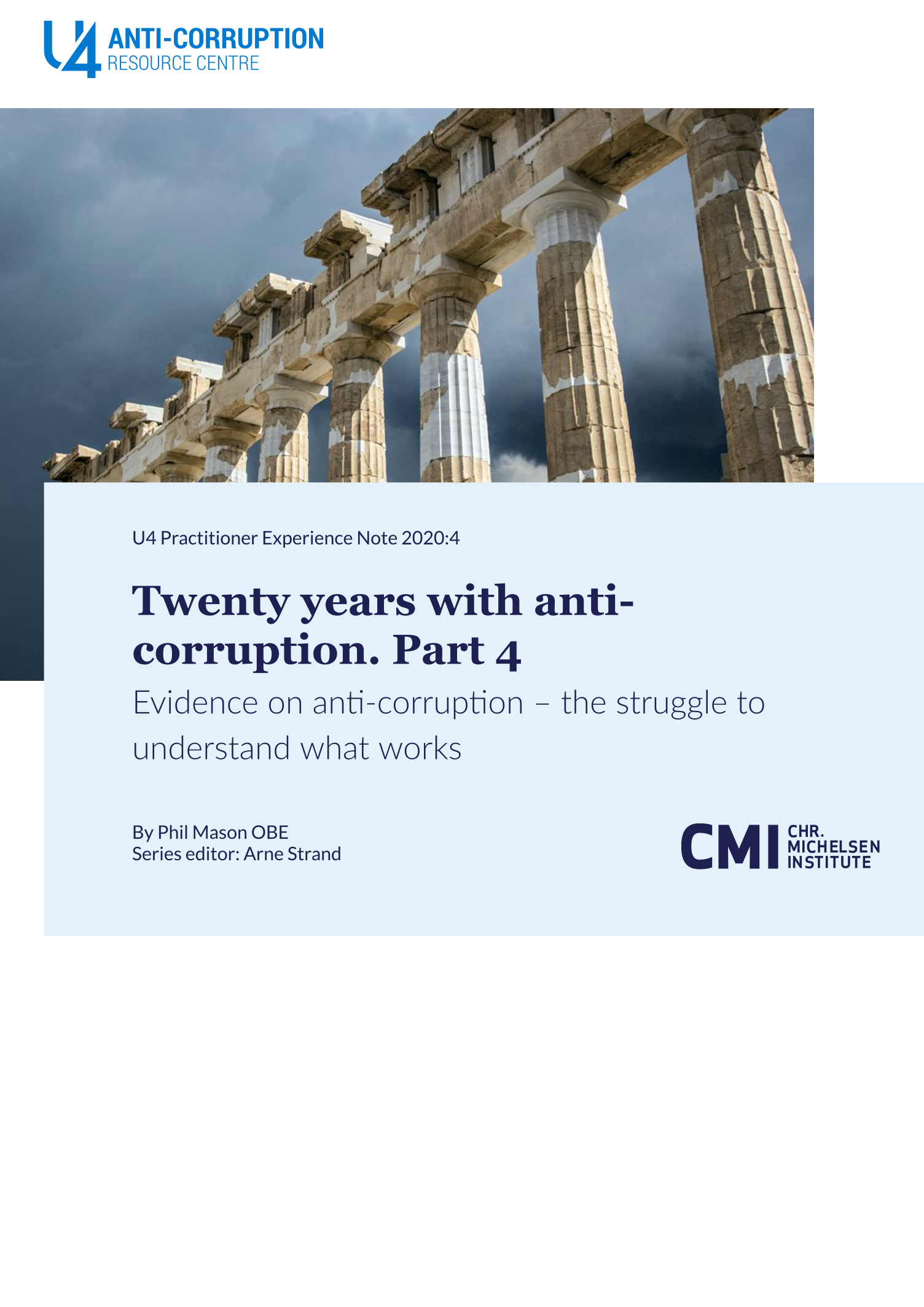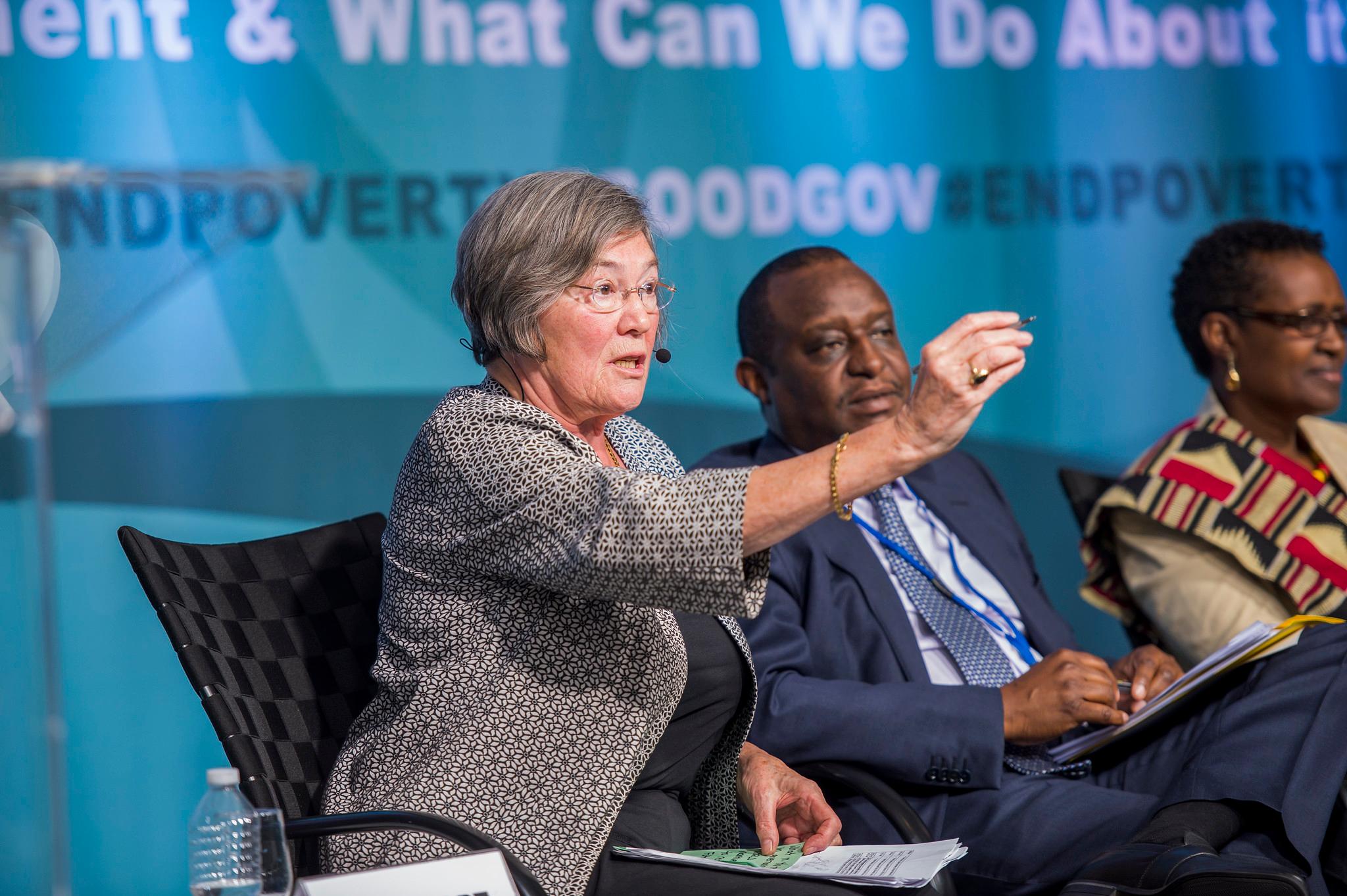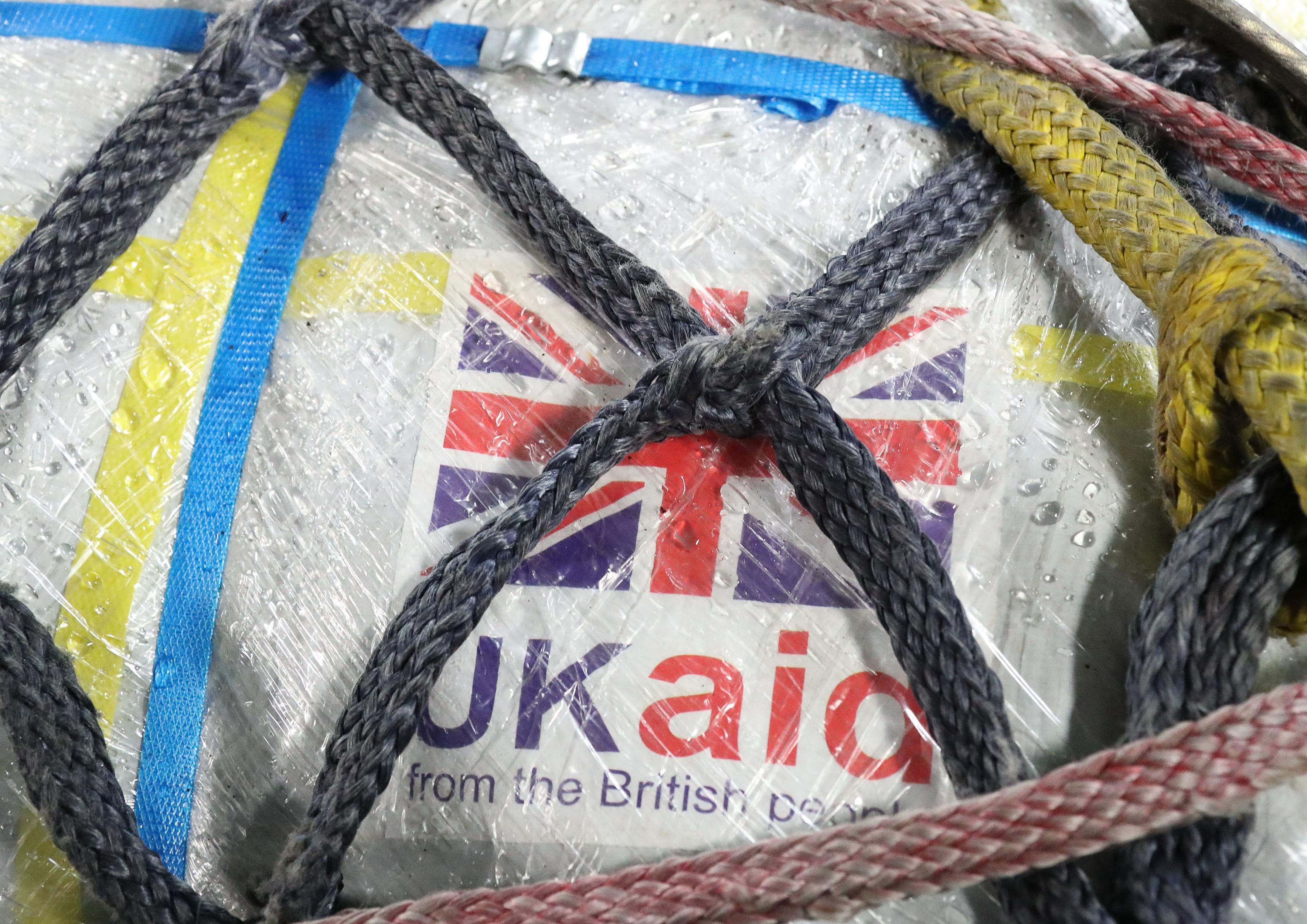Main points
- The way in which donors organise themselves and programme their responses to corruption actually shapes, often in adverse ways, how corruption is conceptualised and approached. This has huge implications for the chances of success, and may explain the paucity of results so far from donor efforts.
- Analysis of anti-corruption evidence to date reveals few insights into how corruption has been successfully tackled, especially through direct interventions. Some successes appear to have come about ‘indirectly,’ as a result of other social changes.
- Many of the interventions continually favoured by donors show clear deficiencies that should bring into question future use.
- There remains a long way to go to reach an understanding of how societies repel corruption. This journey may need to escape the tramlines laid by aid donors.



